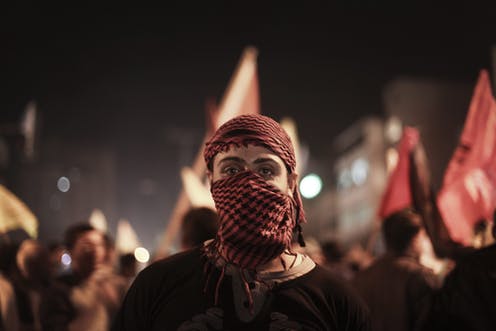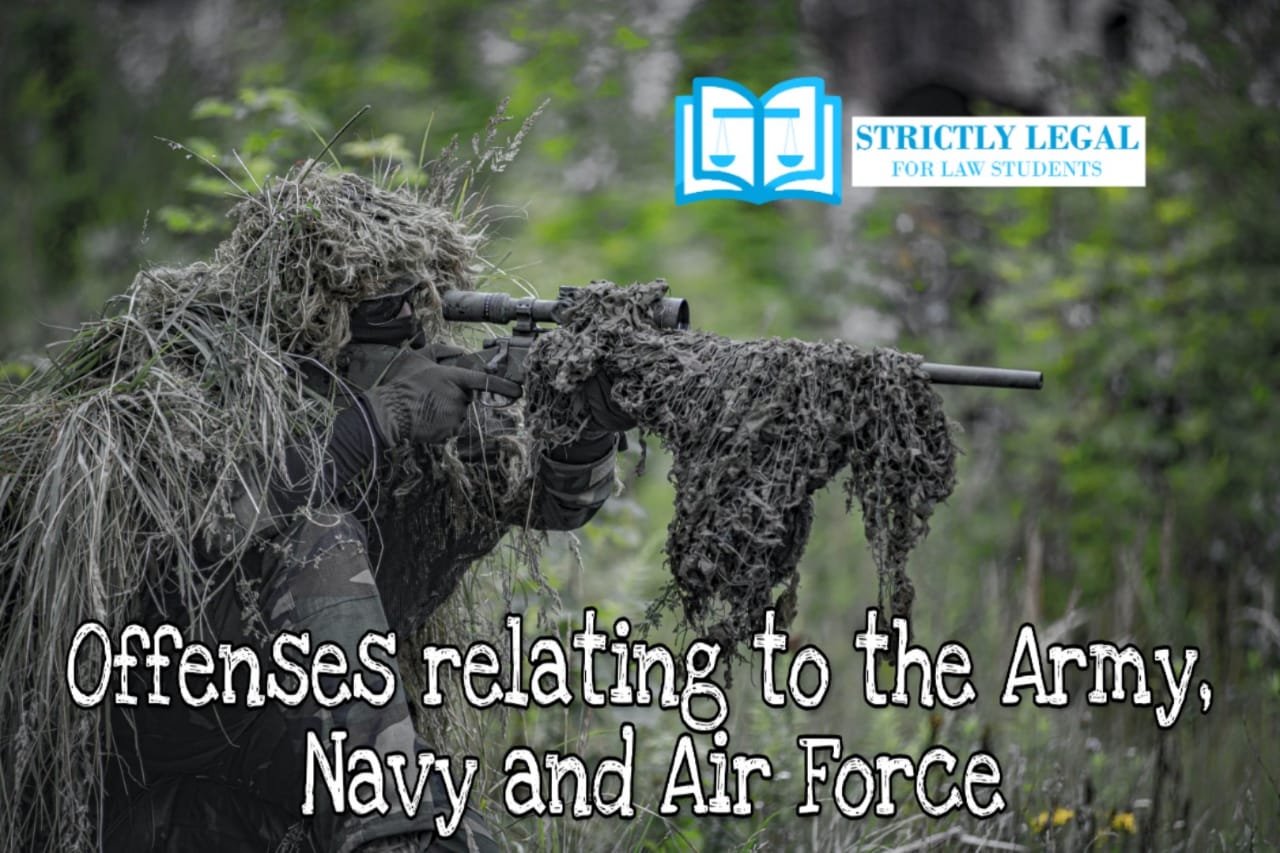From Section 121 to 130 of Indian Penal Code deal with the offences against the State.
Table of Contents
Offences against State can be divide into 4 main categories:
- Wagging War and cognizable offences
- Assaulting High officers.
- Sedition,
- Helping escape State prisoners or Prisoners of State.
Section 121, the Indian Penal Code:
Waging, or attempting to wage war, or abetting waging of war, against the Government of India.—
Whoever, wages war against the Government of India, or attempts to wage such war, or abets the waging of such war, shall be punished with death, or imprisonment for life, and shall also be liable to fine.
Illustration
A joins a rebel against the Government of India. A has committed the offense defined in this section. The offences of wagging war are more serious than murder.
‘A’ can free to have his own political theory and propaganda and work for its establishment so long as he does not seek to do so by force or violence.
‘A’ can write and published his own book without creating hatred or violence or contain a spirit of blood-thirstiness and murderous eagerness directly against the government. It can be held guilty for the abetting of waging war.
Ingredients:
The following ingredients of this section are:
- The accused wagged or attempted to wage war to abetted the wagging war;
- that such war will be against the Government of India.
Case:
Maganlal Radhakrishna v. Emperior.
Section 121A, the Indian Penal Code:
Ingredients:
This section deals with two kinds of conspiracies :-
1. Conspiring within or without India to commit any of the offences punishable by section 121.
2. Conspiring to overawe by means of criminal force, or the show of criminal force the Central Government or any State Government.
Cases:
Arvind v. State
Section 122, the Indian Penal Code:
Collecting arms, etc., with intention of waging war against the Government of India.—
Whoever collects men, arms or ammunition or otherwise prepares to wage war with the intention of either waging or being prepared to wage war against the 90 [Government of India], shall be punished with 91 [imprisonment for life] or imprisonment of either description for a term not exceeding ten years, 92 [and shall also be liable to fine].
Ingredients:
The following ingredients of this section are:
- Collecting men, arms and ammunition, etc.
- The intentions of the above act should be a wage war against the Government of India
Comments:
This section is aims at putting down heavy hand any preparation to wage war against the Government of India.
Section 123, the Indian Penal Code:
Concealing with intent to facilitate design to wage war.—
Whoever by any act, or by any illegal omission, conceals the existence of a design to wage war against the [Government of India], intending by such concealment to facilitate, or knowing it to be likely that such concealment will facilitate, the waging of such war, shall be punished with imprisonment of either description for a term which may extend to ten years, and shall also be liable to fine.
Ingredients:
The following ingredients of this section are:
- The existence of a design to wage war against the Government of India.
- Such a design must be within the knowledge of the accused.
- The accused must have concealed that design; and
- The concealment must have been intended to facilitate the design to wage of war .
Comments:
This Section makes the concealment of design to wage war against the Government of India by any act or omission, so that, such concealment may facilitate the waging of such war, an offense. The offense under this Section is cognizable, non-bailable and non-compoundable and triable by Court of Session
Cases:
State of Delhi v. Novjot Sandhu.
Section 124, the Indian Penal Code:
Assaulting President, Governor, etc., with intent to compel or restrain the exercise of any lawful power.—
Whoever, with the intention of including or compelling the President of India, or the Governor of any State, to exercise or refrain from exercising in any manner any of the lawful powers of such [President]or Governor, assault or wrongfully restrains, or attempts wrongfully to restrain, or overawes, by means of criminal force or the show of criminal force, or attempts so to overawe, such President or Governor shall be punished with imprisonment of either description for a term which may extend to seven years, and shall also be liable to fine.
Ingredients:
The following ingredients of this section are:
- It is an offense committed against the President of India or the Governor of a State
- The accused must commit one of the following acts-
(i) assault or commit assault or attempt;
(ii) Wrongful restraint or attempt to restrain; or
(iii)Use of Criminal force or show.
Section 124A, the Indian Penal Code:
Whoever, by words, either spoken or written, or by signs, or by visible representation, or otherwise, brings or attempts to bring into hatred or contempt, or excites or attempts to excite disaffection towards, 102 [***] the Government established by law in 103 [India], [***] shall be punished with 104 [imprisonment for life], to which fine may be added, or with imprisonment which may extend to three years, to which fine may be added, or with fine. Explanation 1.—The expression “disaffection” includes disloyalty and all feelings of enmity. Explanation 2.—Comments expressing disapprobation of the measures of the Government with a view to obtaining their alteration by lawful means, without exciting or attempting to excite hatred, contempt or disaffection, do not constitute an offense under this section. Explanation 3.—Comments expressing disapprobation of the administrative or other action of the Government without exciting or attempting to excite hatred, contempt or disaffection, do not constitute an offense under this section.
Ingredients:
The following ingredients of this section are:
- “Bringing or attempting to bring into hatred; Exciting or attempting to excite disaffection against the Government of India;
- Such an act or attempt may be done
(a) by words, either spoken or written, or
(b) by signs, or
(c) by visible representation - The act must be intentional
Comments:
This Section includes using of strong word like ‘Disaffection’ and disapprobation’ directly to the Government of India .
Cases:
Q.E. v. Ambika Prasad.
Emperor v. Bal Gangadhar Tilak
Kanhaiya Kumar Case
Section 125, the Indian Penal Code:
Waging war against any Asiatic Power in alliance with the Government of India.—
Whoever wages war against the Government of any Asiatic Power in alliance or at peace with the 1[Government of India] or attempts to wage such war, or abets the waging of such war, shall be punished with 2[imprisonment for life], to which fine may be added, or with imprisonment of either description for a term which may extend to seven years, to which fine may be added, or with fine.
Comments:
This section aims at protecting friendly Asiatic Powers from the ravages of Indian citizens who may make excursions into their territory, and then run back to the comparative security of their own homes.
The fulfillment of the obligations of the State to allies and friendly powers require that the abatement of such schemes by its subjects whether by furnishing supplies or otherwise should be forbidden.
Section 126, the Indian Penal Code:
Committing depredation on territories of Power at peace with the Government of India.—
Whoever commits depredation, or makes preparation to commit depredation, on the territories of any Power in alliance or at peace with the 1[Government of India], shall be punished with imprisonment of either description for a term which may extend to seven years, and shall also be liable to fine and to forfeiture of any property used or intended to be used in committing such depredation, or acquired by such depredation.
This section deals with depredation on territories of powers at peace with the Government of India.
Ingredients:
Ingredients
1. Depredation or making preparations for depredation,
2. Such depredation must be on territories of Power at peace with the Government of India. Depredation is briefly plundered. It is pillaging by men or animals.
Section 127, the Indian Penal Code:
Receiving property taken by war on depredation mentioned in sections 125 and 126.—
Whoever receives any property knowing the same to have been taken in the commission of any of the offences mentioned in sections 125 and 126, shall be punished with imprisonment of either description for a term which may extend to seven years, and shall also be liable to fine and to forfeiture of the property so received.
Ingredients:
The following ingredients are:
- Property in question must have been obtained by waging war against any Asiatic Power in alliance with the Government of India and obtained by depredation in such territories.
- The offense of waging of war ar depredation must be such as is made punishable by section 125 or 126.
- The accused must have received such properties
- He must have received the properties with the knowledge of their character as being obtained by depredation, etc.
Section 128, the Indian Penal Code:
Public servant voluntarily allowing prisoner of State or war to escape.—
Whoever, being a public servant and having the custody of any State prisoner or prisoner of war, voluntarily allows such prisoner to escape from any place in which such prisoner is confined, shall be punished with 1[imprisonment for life], or imprisonment of either description for a term which may extend to ten years, and shall also be liable to fine.
Ingredients:
The following are the ingredients of this section :
1. The accused must be a public servant;
2. The accused had the custody of the prisoner,
3. The prisoner must be a State prisoner or prisoner of war;
4. Such prisoner must have escaped from the place where he was confined; and
5. The accused voluntarily allowed such a prisoner to escape. State Prisoner.
Section 129, the Indian Penal Code:
Public servant negligently suffering such prisoner to escape.—
Whoever, being a public servant and having the custody of any State prisoner or prisoner of war, negligently suffers such prisoner to escape from any place of confinement in which such prisoner is confined, shall be punished with simple imprisonment for a term which may extend to three years, and shall also be liable to fine.
Ingredients:
The following are the ingredients of this section-
1. The accused must be a public servant;
2. The accused had in his custody a State prisoner to escape from place where he was confined.
3. The accused negligently allowed such a prisoner to escape from place where he was confined.
Section 130, the Indian Penal Code:
Aiding escape of, rescuing or harboring such prisoner.—
Whoever knowingly aids or assists any State prisoner or prisoner of war in escaping from lawful custody, or rescues or attempts to rescue any such prisoner, or harbors or conceals any such prisoner who has escaped from lawful custody, or offers or attempts to offer any resistance to the recapture of such prisoner, shall be punished with 1[imprisonment for life], or with imprisonment of either description for a term which may extend to ten years, and shall also be liable to fine. Explanation.—A State prisoner or prisoner of war, who is permitted to be at large on his parole within certain limits in 2[India], is said to escape from lawful custody if he goes beyond the limits within which he is allowed to be at large.
Ingredients:
The following are the ingredients of this section :-
1. The State prisoner or the prisoner of war in question must be in lawful custody;
2 The accused aided or assisted the escape of such prisoner;
3. The accused must have done so knowingly;
4. The accused rescued or attempted to rescue any such prisoner;
5. He must have harbored or concealed any such prisoner; or
6. He must have resisted or attempted to resist the recapture of such prisoner.
Comments:
The accused must know that the person assisted is a State prisoner or a prisoner of war. The use of the word ‘whoever in this section implies that the accused need not necessarily be a Government servant. It may be stated that Sections 128 and 129 are in respect of public servants while Section 130 is applicable to all persons.
In order to attract the provisions of these sections, the public servant or the person, as the case may be, must have knowledge that the prisoner aided or assisted is a State prisoner or a prisoner of war. The term ‘prisoners of war’ denotes those who were in arms against India. Those who are not in arms or surrender are not ‘prisoners of war’. They are merely prisoners until the termination of hostility.
Quick test: Can you answer this question in the comments section below?
Q. When a person is conspiring to commit the offences against the state than that is dealt under?
A. Section 120A of IPC
B. Section 121A of IPC
C. Section 123A of IPC
D. Section 128A of IPC
Contributions such as these help us build and sustain a community of curious minds. We welcome Contributors to Sign up on our website through this link and send us their articles or blog posts.
Striving to create a community of like minds,
team SL,

Trying to learn the art of advocacy.
Practicing at the Calcutta High Court and in its vicinity.




